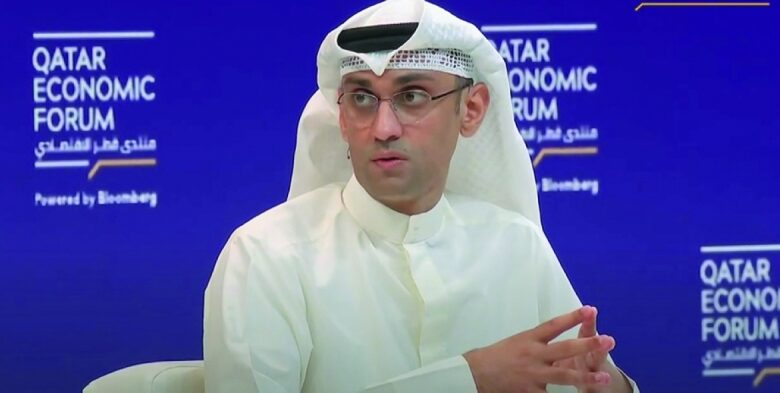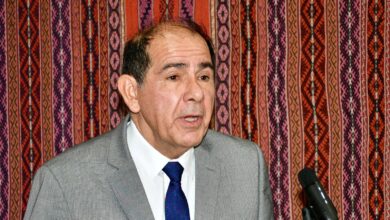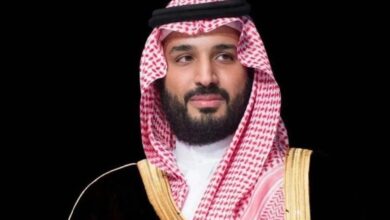
At a time of mounting uncertainty in global markets and tightening margins for private equity investors, Sheikh Saud Salem Al-Sabah, Managing Director of the Kuwait Investment Authority (KIA), delivered a firm and thought-provoking message, saying, successful investing is no longer about luck, but about discipline, bold decision-making, and long-term strategy.
Speaking during a high-level panel discussion at the Qatar Economic Forum, held in collaboration with Bloomberg, Al-Sabah presented a roadmap for identifying and seizing global investment opportunities. He emphasized that the era of easy profits has passed, and that investors must now be prepared to act decisively when opportunity arises.
“If you are a long-term investor, you cannot rely on luck to achieve success,” Al-Sabah stated. “You need a long-term strategy, a structured process, the right talent, and boldness.”
Al-Sabah reaffirmed KIA’s unwavering commitment to investing in the United States, describing it as a cornerstone of any global investment portfolio.
“Those who reduce allocations to U.S. assets — compared to what, exactly? The U.S. still enjoys the rule of law, and it has unmatched depth across asset classes — from fixed income and private equity to real estate and infrastructure,” he said. “Underestimating the investment weight of the United States is a risk to the detriment of those who do so.”
He noted that even if traditional U.S. equity markets appear less attractive, capital would still remain within the U.S. economy — flowing into infrastructure, credit, or private equity — reinforcing the country’s central role in global finance.
Reflecting on KIA’s historic role during financial crises, Al-Sabah revealed how the Authority was instrumental in stabilizing the financial services industry during the global financial crisis.
“We benefited from that crisis. We had learned from the dot-com bubble, and we were ready when the time came. The process was already in place,” he said. “If your strategy is sound and forward-looking, you don’t need to be reactive — you’re already there.”
Al-Sabah issued a stark warning to the private equity industry: time is running out. Buyout funds must begin returning capital to investors, especially after years of unsustainable practices.
“Many deals were priced without proper value creation or viable exit strategies,” he said. “Some firms relied too heavily on leverage and tax arbitrage without understanding the risks.”
He criticized the growing size of private equity funds, warning that multi-billion-dollar portfolios with no clear buyers or exit options could turn into liabilities.
“We have $3 trillion in portfolios that haven’t materialized. And the worst part? They’re nearing the end of their fund life cycles,” Al-Sabah said, adding, secondary markets now offer a “golden window of opportunity” — not due to current trends, but because of structural mistakes made five to ten years ago that are only now being reckoned with.
When asked about mistakes, Al-Sabah was candid: “Everyone makes mistakes. What matters is learning from them and improving the process.”
He emphasized that investing is not about perfect foresight but about disciplined execution. “Sometimes the best investment decisions you make are the opportunities you don’t pursue,” he said. “Investing requires emotional discipline. The data may be strong, but investors often act as if the world is ending — buying in a bull market and selling in a downturn. That’s the fastest way to lose.”
Al-Sabah cautioned against misinterpreting risk and letting emotions drive decisions.“Risk is not always what it seems. It’s often seen as a number, but without process, that number is meaningless. Investing is rational — but investors are not,” he added.
He argued for eliminating emotions from the decision-making process, especially in times of volatility, noting how market sentiment can rapidly shift from pessimism to euphoria.
“The world seems upside down. But if you focus on hard data instead of headlines, the picture becomes clearer,” he said.
Addressing how capital is allocated between public and private markets, Al-Sabah underscored the importance of knowing your end goal and reverse-engineering a portfolio to meet that objective.
In public markets, he warned against the dominance of mega-cap tech stocks, which now represent about 30% of the S&P 500 — double what it was a decade ago. “They’re highly correlated. That’s leverage on top of concentration — and that’s a risk,” he disclosed.
Even in public debt markets, Al-Sabah noted, investors can now earn equity-like returns at the top of the capital structure, provided they act at the right time.
Al-Sabah concluded with a message that resonated strongly with long-term investors, saying, “Success in investing today requires readiness, courage, and the humility to improve. The easy times are over — now is the time to make decisions when opportunities arise.”
He credited his team at the Kuwait Investment Authority for staying focused on process and performance, and reminded the audience that long-term returns are built not on hype or headlines, but on sound strategy and resilience.
Key Takeaways for Investors — Build a long-term strategy — then stay committed to it; create a disciplined investment process and refine it over time; identify and develop talent that can recognize and evaluate opportunities and act boldly when the time is right — and don’t be afraid to pass on deals that don’t meet your standards.












